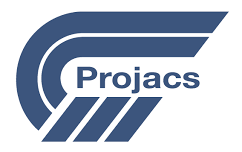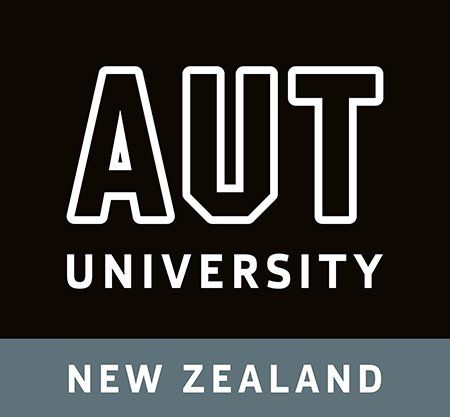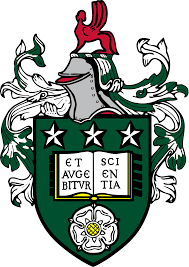
Electrical Transformers, Malfunctions, Insulation, and Protection
Course ID: 2509014501256EGI
Course Dates : 01/09/25 Course Duration : 5 Studying Day/s Course Location: Istanbul, Turkey
Language: Bilingual
Course Category: Professional and CPD Training Programs
Course Subcategories: Health, Safety and Risk Management
Course Certified By: * Projacs Academy
* Professional Training and CPD Programs
Certification Will Be Issued From :
KSA
Course Fees: £3,424.06
Vat Not Included in the price. VAT may vary depending on the country where the course or workshop is held.
Click to Pay
Date has passed please contact us Sales@e-s-hub.com
Course Information
Introduction
Electrical transformers are the backbone of modern power systems, enabling efficient energy transmission and distribution across industries. These devices play a pivotal role in stepping up or stepping down voltage levels, ensuring that electricity generated at power plants is delivered to end-users safely and reliably. Despite their critical importance, transformers are often overlooked until malfunctions occur, leading to costly downtime and potential safety hazards. This course addresses the pressing need for professionals to deepen their understanding of transformer operations, maintenance, and protection mechanisms, equipping them with the expertise to anticipate and mitigate issues before they escalate.
The intricate interplay of physics, engineering, and material science in transformer design presents both opportunities and challenges. For instance, insulation degradation over time is a common issue that can compromise system integrity if not addressed proactively. Similarly, protection schemes must be meticulously designed to safeguard against electrical faults, such as short circuits or overloads. Industry reports indicate that nearly 30% of transformer failures stem from inadequate insulation or improper protective measures, underscoring the gap in knowledge and practice. By bridging this gap, participants will gain the tools necessary to enhance operational efficiency and reduce risks.
One cannot discuss transformers without acknowledging their centrality to global energy trends. As renewable energy sources like wind and solar become increasingly integrated into grids, transformers must adapt to handle variable loads and fluctuating frequencies. Real-world examples abound: consider the case of a utility company in Germany that faced repeated transformer failures after integrating large-scale solar farms. Upon investigation, it was revealed that insufficient insulation and outdated protection systems were the culprits. Such scenarios highlight the urgent need for updated training programs that align with evolving industry demands.
Participants in this course will benefit not only from theoretical insights but also from practical applications rooted in established frameworks. The course draws on principles from IEEE standards, IEC guidelines, and reliability-centered maintenance (RCM) methodologies to provide a comprehensive learning experience. Mastery of these concepts empowers professionals to optimize asset performance, extend equipment lifespan, and minimize operational disruptions—outcomes that resonate deeply with both individuals and organizations.
For organizations, investing in transformer expertise translates into tangible returns. Improved maintenance practices can reduce repair costs by up to 40%, while enhanced protection strategies significantly lower the risk of catastrophic failures. On an individual level, professionals who acquire advanced skills in transformer management position themselves as indispensable assets within their teams. Whether troubleshooting malfunctions, designing robust insulation systems, or implementing cutting-edge protection technologies, they contribute directly to organizational success.
Ultimately, this course seeks to transform how transformers are perceived and managed within the industry. By blending technical rigor with real-world relevance, it fosters a culture of continuous improvement and innovation. Participants will leave equipped not only with specialized knowledge but also with the confidence to tackle complex challenges head-on, ensuring that transformers remain reliable workhorses in an ever-evolving energy landscape.
Objectives
By attending this course, participants will be able to:
Analyze the fundamental principles of transformer operation, including voltage transformation and core functionality.
Evaluate common causes of transformer malfunctions and propose effective diagnostic techniques.
Design appropriate insulation systems tailored to specific environmental and operational conditions.
Implement advanced protection schemes to mitigate electrical faults and ensure system reliability.
Apply predictive maintenance strategies to enhance transformer longevity and performance.
Assess compliance requirements based on international standards such as IEEE and IEC.
Synthesize data-driven insights to optimize transformer management practices in alignment with emerging industry trends.
Who Should Attend?
This course is ideal for:
Electrical engineers and technicians involved in power system design, operation, and maintenance.
Maintenance managers seeking to improve asset reliability and reduce downtime.
Consultants specializing in energy infrastructure projects requiring transformer expertise.
Professionals working in utilities, manufacturing plants, or renewable energy sectors where transformers are mission-critical.
These groups will find the course invaluable due to its focus on practical solutions to everyday challenges, supported by rigorous theoretical foundations. While prior knowledge of basic electrical concepts is recommended, the course is structured to accommodate intermediate learners looking to deepen their expertise.
Training Method
• Pre-assessment
• Live group instruction
• Use of real-world examples, case studies and exercises
• Interactive participation and discussion
• Power point presentation, LCD and flip chart
• Group activities and tests
• Each participant receives a 7” Tablet containing a copy of the presentation, slides and handouts
• Post-assessment
Program Support
This program is supported by:
* Interactive discussions
* Role-play
* Case studies and highlight the techniques available to the participants.
Daily Agenda
The course agenda will be as follows:
• Technical Session 08.30-10.00 am
• Coffee Break 10.00-10.15 am
• Technical Session 10.15-12.15 noon
• Coffee Break 12.15-12.45 pm
• Technical Session 12.45-02.30 pm
• Course Ends 02.30 pm
Course Outlines
Fundamentals of Transformer Operation
Principles of electromagnetic induction and transformer construction.
Core vs. shell-type transformers: design considerations.
Voltage transformation ratios and efficiency calculations.
Cooling mechanisms and thermal management.
Day 2:
Common Malfunctions and Diagnostic Techniques
Identifying signs of transformer failure through visual inspections.
Root cause analysis of winding damage and oil degradation.
Tools and methods for condition monitoring.
Case study review: Diagnosing a transformer fire incident.
Day 3:
Insulation Systems and Material Selection
Types of insulating materials and their properties.
Environmental factors affecting insulation performance.
Testing procedures for insulation resistance and dielectric strength.
Best practices for maintaining insulation integrity.
Day 4:
Protection Mechanisms and Fault Management
Overview of electrical faults: short circuits, overloads, and earth faults.
Relay coordination and differential protection schemes.
Grounding techniques to prevent fault propagation.
Simulation exercises: Responding to simulated fault scenarios.
Day 5:
Compliance, Updates, and Future Trends
Review of IEEE and IEC standards for transformers.
Predictive maintenance using IoT and AI technologies.
Integration of transformers in smart grids and renewable energy systems.
Group project presentations and feedback session.



















































